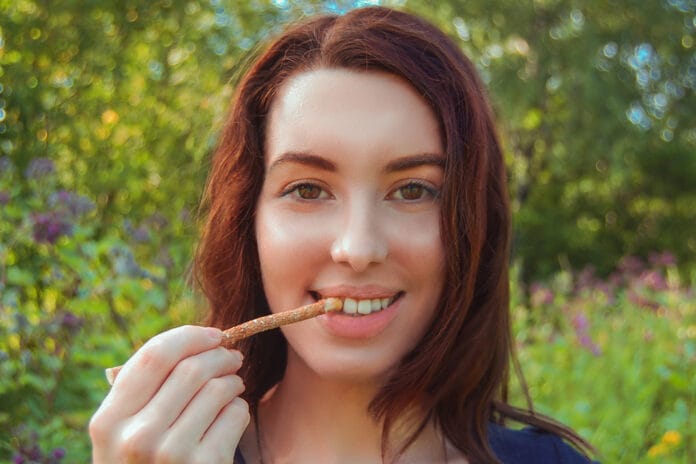Miswak chewing sticks are a traditional teeth cleaning aid used predominantly by people living in African, Asian, Arabian, and Middle Eastern countries. A team of scientists from Kuwait decided to conduct a study to further examine their effectiveness. The results of their research, titled “A clinical investigation into the efficacy of miswak chewing sticks as an oral hygiene aid: A crossover randomized trial,” was published in the November 2020 issue of the International Journal of Dental Hygiene.
About Miswak Chewing Sticks
Derived from the Salvadora persica tree, miswak chewing sticks were used for centuries before modern toothbrushes were invented. The abrasive friction between the plant fibers and the surface of the tooth can reduce dental plaque buildup and remove food stains. The chewing sticks also contain elements like alkaloids, fluoride, and calcium, which have natural antibacterial qualities to help fight gingivitis.
A previous study published in the Saudi Journal for Dental Research, a highly respected peer-reviewed journal in the English language, agreed with the World Health Organization that miswak chewing sticks are a highly effective oral hygiene aid. Since they are affordable, easy to use, and readily available, scientists believe miswak chewing sticks will only continue to grow in popularity.
About The Miswak Chewing Stick Study
Since miswak chewing sticks have been tested in previous studies, a group of researchers from Kuwait University decided to organize a randomized crossover clinical trial to further investigate its efficacy. The team evaluated how miswak chewing sticks reduced overall gingival inflammation, oral microbiota, and dental plaque over a four-week period.
Twenty people participated in the Kuwait University study. The scientists randomly split the group in half and asked one set to use a toothbrush and miswak chewing sticks for the first two weeks and just a toothbrush during the rest of the experiment. Meanwhile, the other 10 participants were instructed to clean their teeth using only a toothbrush in the beginning and add the miswak chewing sticks during the last two weeks.
The university researchers gathered supragingival plaque samples from the participants before the study began (during the baseline period) and every two weeks afterward. They evaluated their plaque index, gingival bleeding levels, and gingival index at the same time by measuring the existing Streptococcus mutans and Aggregatibacter actinomycetemcomitans using a real-time polymerase chain reaction (qPCR) device. Both types of bacteria help contribute to dental caries and tooth decay.
Based on the study’s findings, the team of scientists concluded that the gingival index, gingival bleeding, and plaque index scores significantly improved for both groups. The researchers also noticed that participants who used a toothbrush and miswak chewing stick experienced less bleeding upon probing.
A significantly greater reduction in the percentage of sites with bleeding gingiva was observed for the groups that used a toothbrush and miswak chewing stick. Their index scores decreased from 32.2 to 14.93, versus the 34 to 26 from participants who only used a toothbrush. After the second week, the participants who cleaned their teeth with a miswak chewing stick experienced a significant improvement (p < .05) in the plaque index, gingival index, and gingival bleeding scores when compared with the other group. There wasn’t a large difference in the number of Streptococcus mutans and Aggregatibacter actinomycetemcomitans microbial accounts between the two groups by the end of the study.
Miswak Chewing Sticks Conclusion
Overall, miswak chewing sticks are a common oral hygiene aid due to their simplicity, affordability, and availability in multiple regions around the world. When combined with toothbrushes and other homecare aids, they can significantly help improve plaque, gingivitis, and gingival bleeding.











